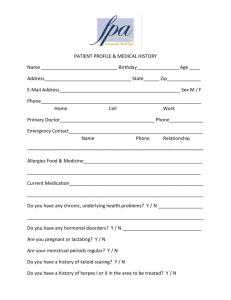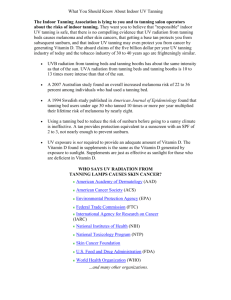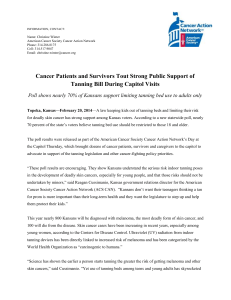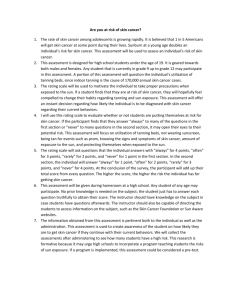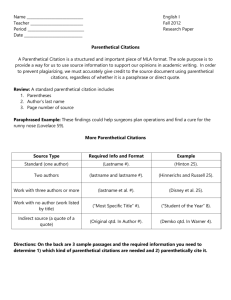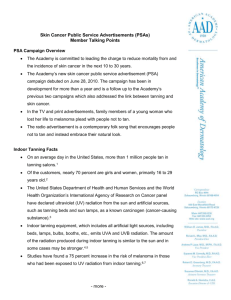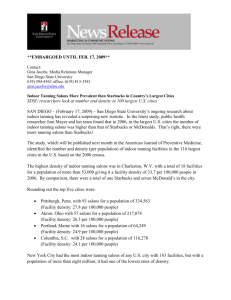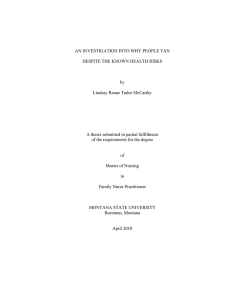FOR MORE INFORMATION, CONTACT:
advertisement
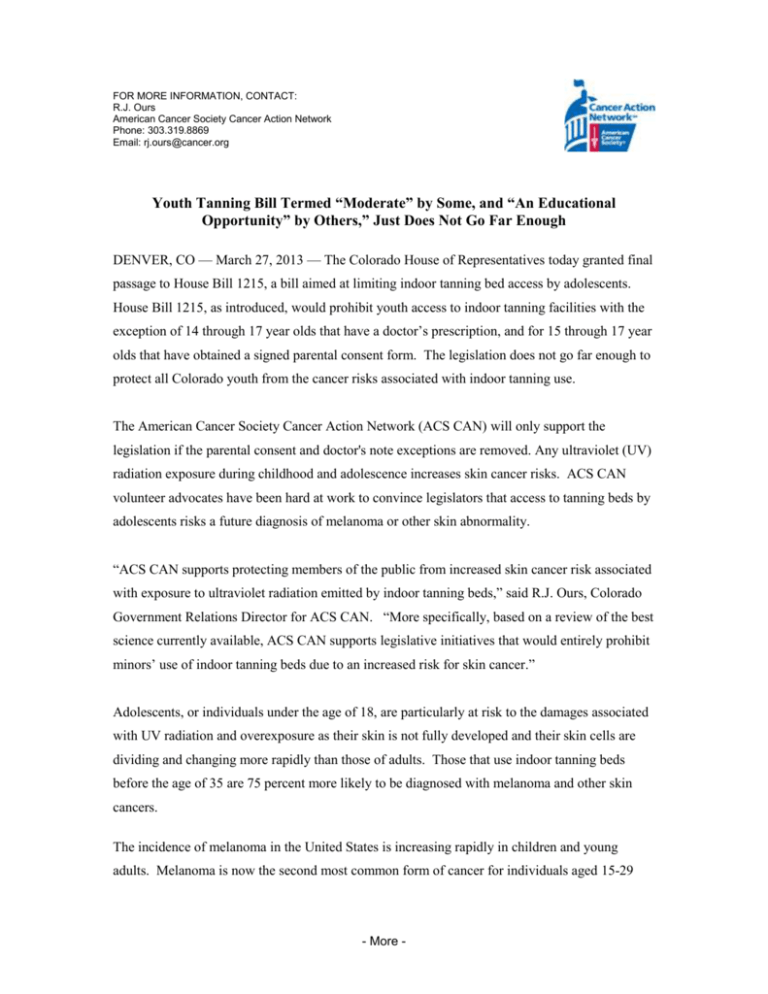
FOR MORE INFORMATION, CONTACT: R.J. Ours American Cancer Society Cancer Action Network Phone: 303.319.8869 Email: rj.ours@cancer.org Youth Tanning Bill Termed “Moderate” by Some, and “An Educational Opportunity” by Others,” Just Does Not Go Far Enough DENVER, CO — March 27, 2013 — The Colorado House of Representatives today granted final passage to House Bill 1215, a bill aimed at limiting indoor tanning bed access by adolescents. House Bill 1215, as introduced, would prohibit youth access to indoor tanning facilities with the exception of 14 through 17 year olds that have a doctor’s prescription, and for 15 through 17 year olds that have obtained a signed parental consent form. The legislation does not go far enough to protect all Colorado youth from the cancer risks associated with indoor tanning use. The American Cancer Society Cancer Action Network (ACS CAN) will only support the legislation if the parental consent and doctor's note exceptions are removed. Any ultraviolet (UV) radiation exposure during childhood and adolescence increases skin cancer risks. ACS CAN volunteer advocates have been hard at work to convince legislators that access to tanning beds by adolescents risks a future diagnosis of melanoma or other skin abnormality. “ACS CAN supports protecting members of the public from increased skin cancer risk associated with exposure to ultraviolet radiation emitted by indoor tanning beds,” said R.J. Ours, Colorado Government Relations Director for ACS CAN. “More specifically, based on a review of the best science currently available, ACS CAN supports legislative initiatives that would entirely prohibit minors’ use of indoor tanning beds due to an increased risk for skin cancer.” Adolescents, or individuals under the age of 18, are particularly at risk to the damages associated with UV radiation and overexposure as their skin is not fully developed and their skin cells are dividing and changing more rapidly than those of adults. Those that use indoor tanning beds before the age of 35 are 75 percent more likely to be diagnosed with melanoma and other skin cancers. The incidence of melanoma in the United States is increasing rapidly in children and young adults. Melanoma is now the second most common form of cancer for individuals aged 15-29 - More - years and the most common form of cancer for young adults aged 25-29 years. In Colorado, some 1,310 new cases of melanoma are likely to be diagnosed in 2013. “Passage of this bill in its current form will simply deliver the message that General Assembly considers minors’ use of indoor tanning beds is OK and not a health risk to be taken seriously, ” said Ours. Despite considerable evidence, there is a general misconception among adults and adolescents about the potential harms of using these devices. Indoor tanning beds deliver UVA radiation 515 times higher than what is delivered by the summer midday sun. Furthermore, multiple studies demonstrate that indoor tanners receive sunburns or suffer other skin damage after indoor tanning sessions. Two states, California and Vermont have passed legislation banning tanning bed usage for minors under the age of 18. Several other states have introduced, or are in the process of introducing, similar measures Skin cancer is the most common form of cancer in the United States. Every year, more than two million cases of skin cancer are diagnosed. Exposure to UV radiation, either from sunlight or indoor tanning devices, is the most important, avoidable known risk factor for skin cancer. This year, it is estimated that more than 1.6 million Americans will be newly diagnosed with cancer and more than 577,000 will die. In Colorado alone, 23,410 people will be diagnosed and 7,350 will die. ACS CAN is the nonprofit, nonpartisan advocacy affiliate of the American Cancer Society, which is dedicated to eliminating cancer as a major health problem. ACS CAN works to encourage lawmakers, candidates and government officials to support laws and policies that will make cancer a top national priority. ACS CAN gives ordinary people extraordinary power to fight cancer. For more information, visit www.acscan.org. # # ### #
